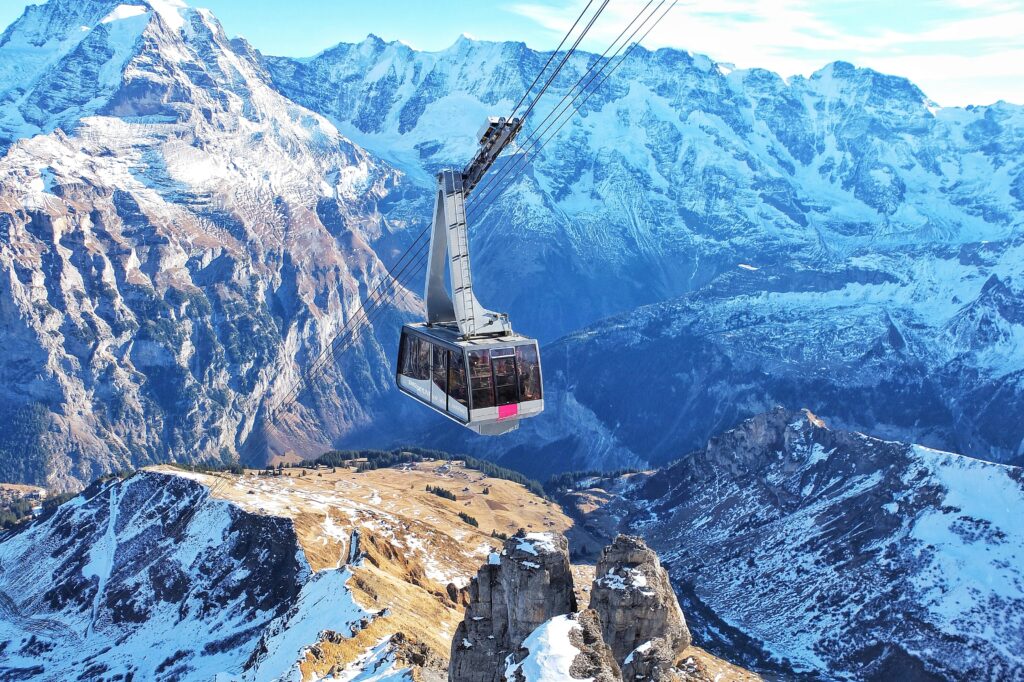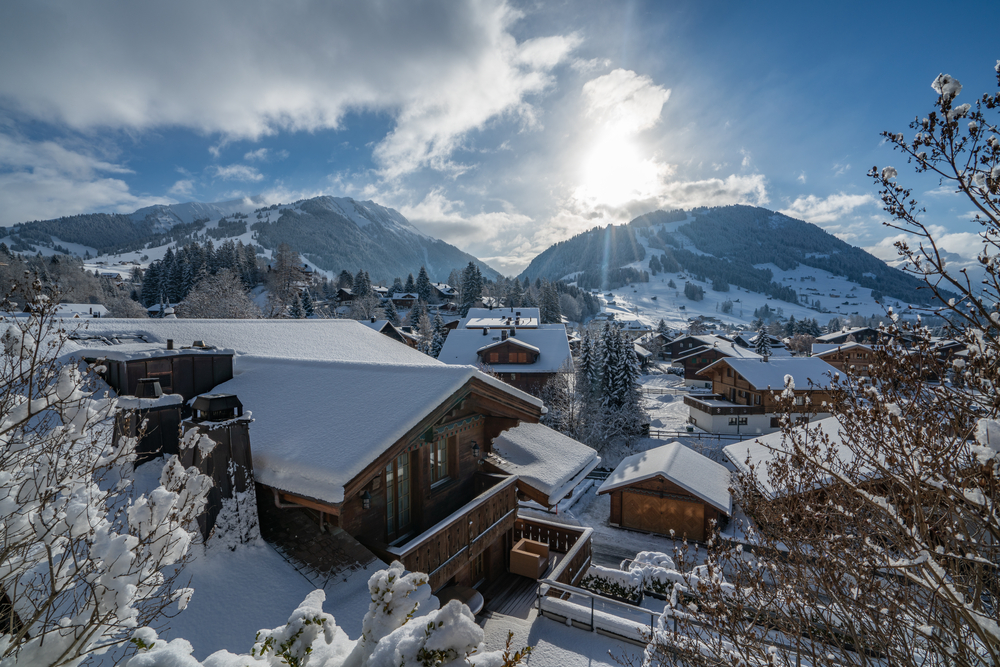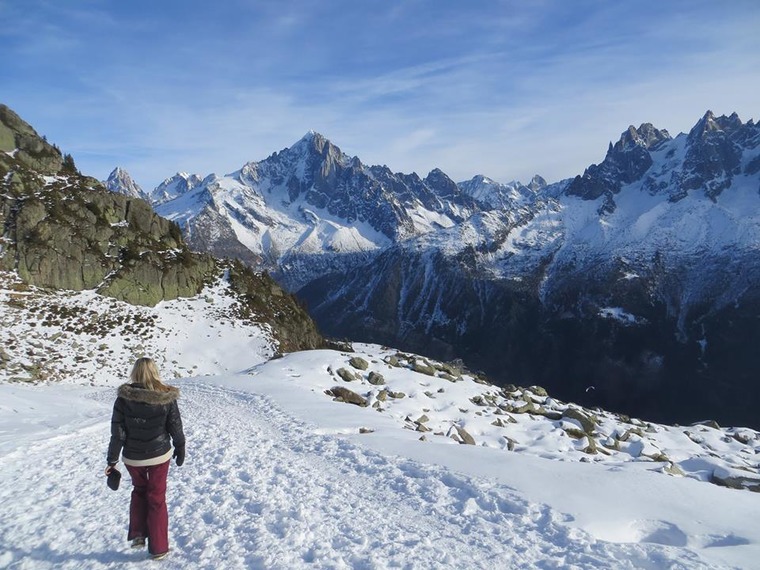Mié, Nov 9th 2022
The winter season is when Switzerland makes the most in its tourism industry; but, how will it hold up against inflation, an energy crisis, and a service industry still reeling from the Covid pandemic?

The winter tourism industry in Switzerland was on the road to recovery after the catastrophic impact of the pandemic. But potential energy shortages and inflation could slow the industry’s positive momentum.
Winter tourism is big business in Switzerland, with the season typically bringing in around CHF 2 billion ($2.2 billion) a year. World-class skiing, enchanting Christmas markets, snow-capped vistas, and fondue drew over 5.6 million foreign visitors to Switzerland last year alone.
The Federal Statistical Office (FSO) confirms a 54 percent increase compared to the 2020/21 season, which saw significantly lower numbers due to the pandemic. Similarly, domestic demand rose considerably last winter, with 1.4 million additional overnight stays, setting an all-time record high of 21 million. Combined, domestic and foreign overnight stays nearly reached the pre-pandemic levels of 2019.
The numbers reveal that Swiss tourism survived the crisis better than many other nations. This positive uptick led forecasters to believe that this winter season would follow suit, with some experts predicting a 97 percent rebound to pre-pandemic levels. Forecasters were undoubtedly encouraged by the staggering 25 million skier days recorded last season, which, according to the association of ski lift operators, hasn’t been achieved in a decade. The CHF 828 million (around $844 million) turnover was also the highest since the 2010/11 season.

Gondolas, chair lifts, snow machines and nighttime lighting all require a lot of electricity — at a moment when energy prices are skyrocketing.
Storm clouds looming on the horizon
Despite last year’s record-high turnover at Swiss ski resorts, Switzerland is facing new challenges that may hamper growth this winter season. Escalating energy costs and the strong franc are among the challenges the industry is facing.
Adding to that, director of the Swiss Mountain Railways, Berno Stoffel, said that last winter’s figures were boosted by the early arrival of snow in Switzerland, which may not happen this time around. The remarkably high numbers were also likely influenced by the harsher Covid restrictions in neighboring countries. Switzerland had the advantage of being one of the only countries in the region with open pistes and relatively few restrictions. But this year, ski resorts throughout Europe will be back open posing strong competition to pricey Swiss ski resorts. (Read more: The top seven gondola rides in Switzerland).

Experts say that the strong franc may deter foreign visitors from traveling to Switzerland this winter.
Experts disagree about the energy crisis
Although ski resorts in neighboring countries will be open again, the Swiss Economic Institute (KOF) has predicted that they may struggle more than Switzerland due to their reliance on natural gas imports, as most of it arrives via Germany who buys it from Russia. Unlike other European nations, Switzerland does not depend on gas to generate electricity. The country’s 682 hydroelectric power plants provide more than half of the electricity produced in Switzerland (61.5 percent in 2021).
Despite the positive predictions from KOF, the Swiss Cable Car Association is less optimistic. In September, it said that ski lifts will need to adapt to meet the rising costs of electricity as the sector consumes 0.34 percent of energy in Switzerland. A representative from the association told local media outlet NZZ that it “estimates a 3 percent rise for the cost of lift passes as ski regions are heavily dependent on energy.”
While there are currently no government restrictions in place that would force reduced operations, Swiss Mountain Railways is voluntarily planning to use 5 percent less energy. But if regulations were to be imposed, Swiss Mountain Railways director Berno Stoffel has said they could reduce energy consumption by up to 20 percent. Among options such as reducing heat and hot water in facilities, Stoffel says it may mean “turning off advertising lighting, reducing heating, cold water in toilet buildings, night driving, gutter heating and so on. We are in the process of determining a whole range of measures that can also be implemented by mountain railways.”

Swiss hotels may have to leave indoor pools unheated and saunas closed to save energy.
Swiss hotels will raise their prices again
With varying opinions about how this winter season will pan out, most experts agree that the strength of the franc against the euro will also likely deter European visitors who will have less purchasing power in Switzerland. (Read more: The best thermal baths in Switzerland).
So far Switzerland has avoided the worst of the inflation, just 3.3 percent, compared to its Eurozone neighbors at more than 10 percent. The tourism industry is typically sensitive to the exchange rate, but a spokesperson for the Hotelleriesuisse hotel industry body told AFP that the rise of the franc has enabled Swiss hoteliers to increase their prices to a lesser degree than neighboring countries.
“For hoteliers, this means that they should become even more competitive against foreign countries,” the spokesperson said.
More competitive prices could help balance out increased costs due to a rise in energy prices and the anticipated fewer, foreign overnight stays. However, most Swiss hotels are planning to pass the higher costs of electricity, gas, and oil on to their guests, according to a survey by the Hotelleriesuisse association, reported NZZ am Sonntag. The survey results show that on average, a Swiss hotel room will be 5 percent more expensive this year. While increased energy prices are the primary reason for increased prices, the cost of food and securing skilled staff amidst an acute shortage of hotel workers factor in, as well.

The make or break moment for Swiss winter tourism: If locals will still buy season passes amidst escalating prices.
Swiss residents will be the deciding factor
Home-based travel will continue to play a significant role in helping the industry recover from the catastrophic effects of the pandemic. Federal data has shown that whatever happens abroad, Swiss citizens will play a vital role in ensuring winter tourism succeeds this year.
“It could be a very good season, but it could also end catastrophically, especially if Switzerland gets into an energy shortage,” Hotellerie-Suisse Director Claude Meier. While the rise in prices will certainly increase the cost of leisure for international and domestic visitors, many more are dependent on the sector for their livelihood. Four out of every one hundred people in Switzerland depend on the industry for employment. As a nation, we can only hope for the best this winter season.
Este artículo puede ser compartido y republicado en otros sitios web sin nuestro permiso, siempre que se enlace a la página original de UltraSwiss.
